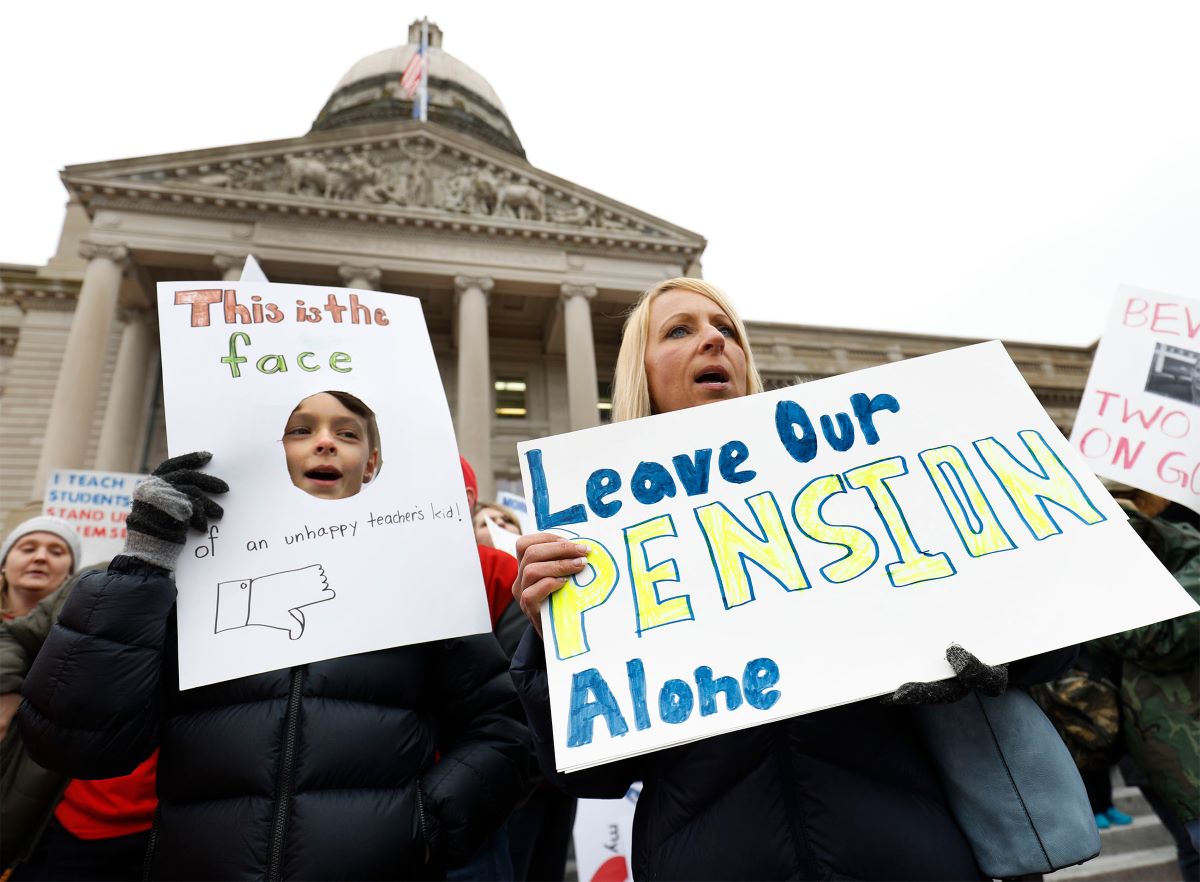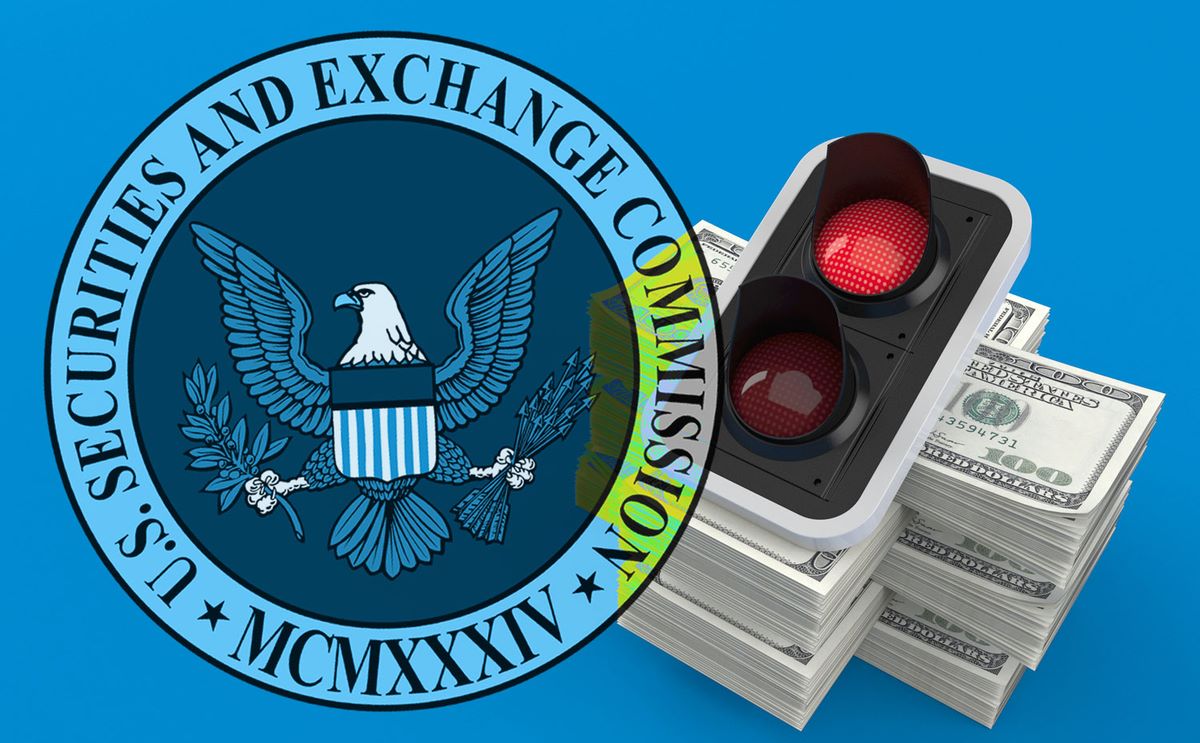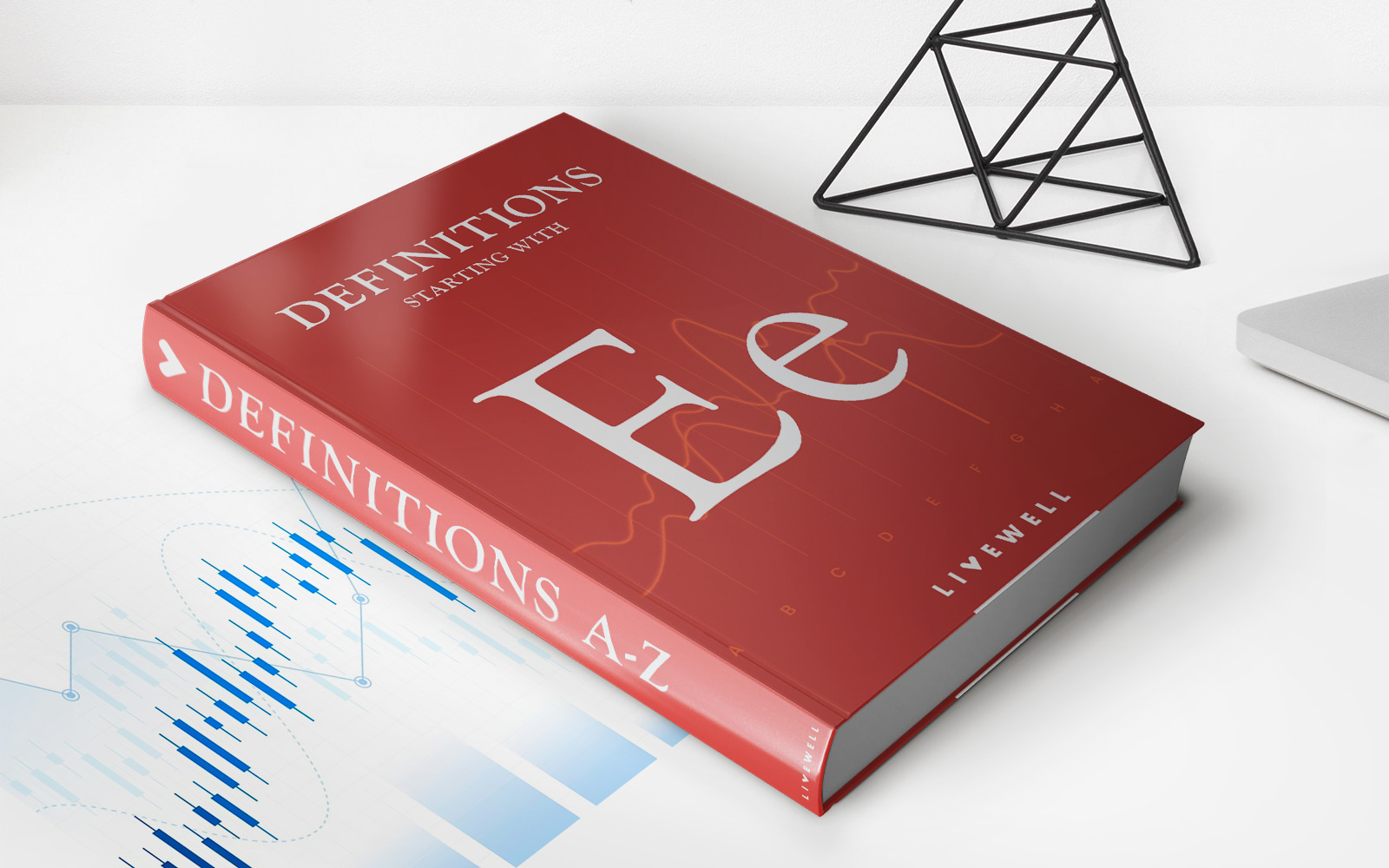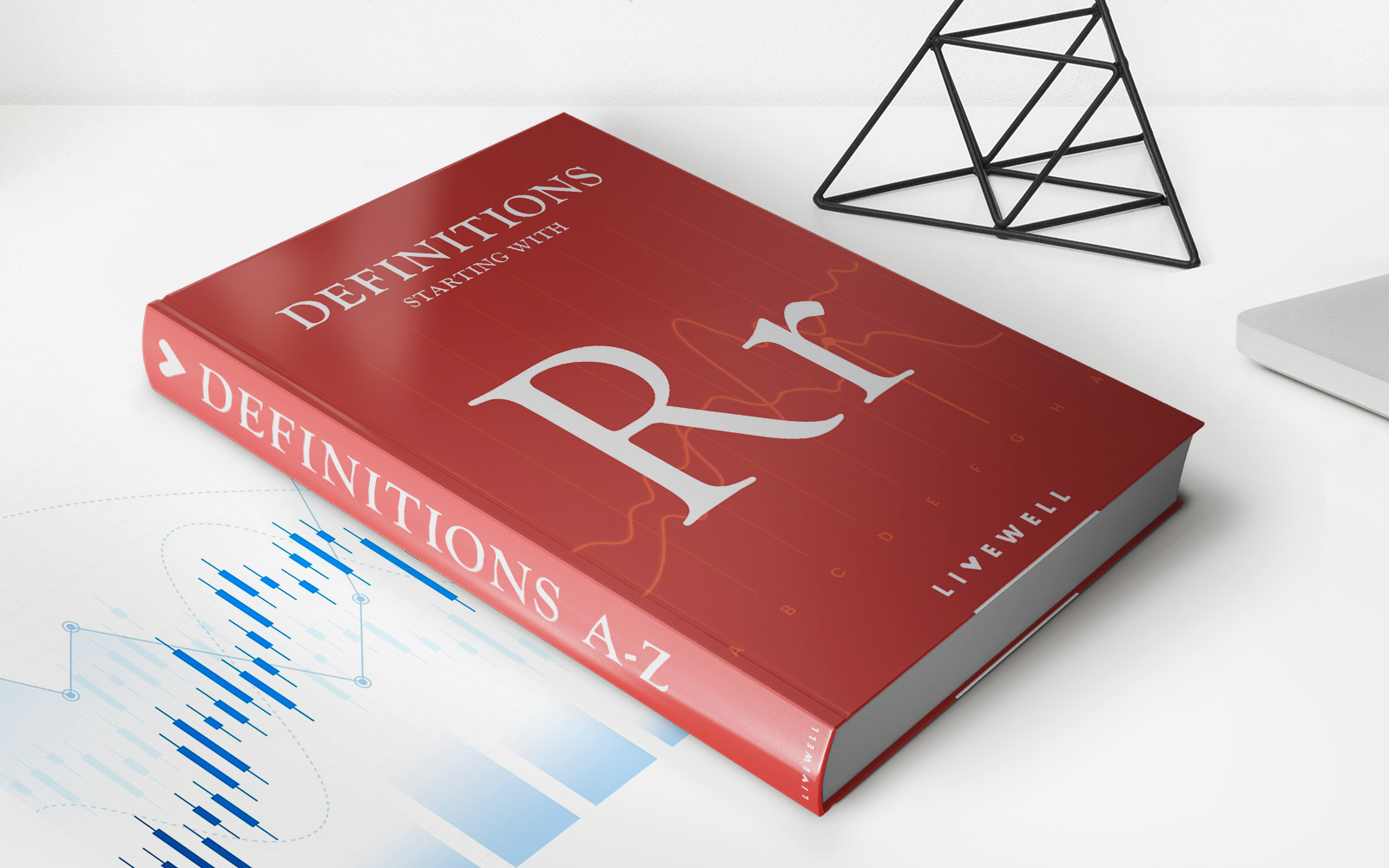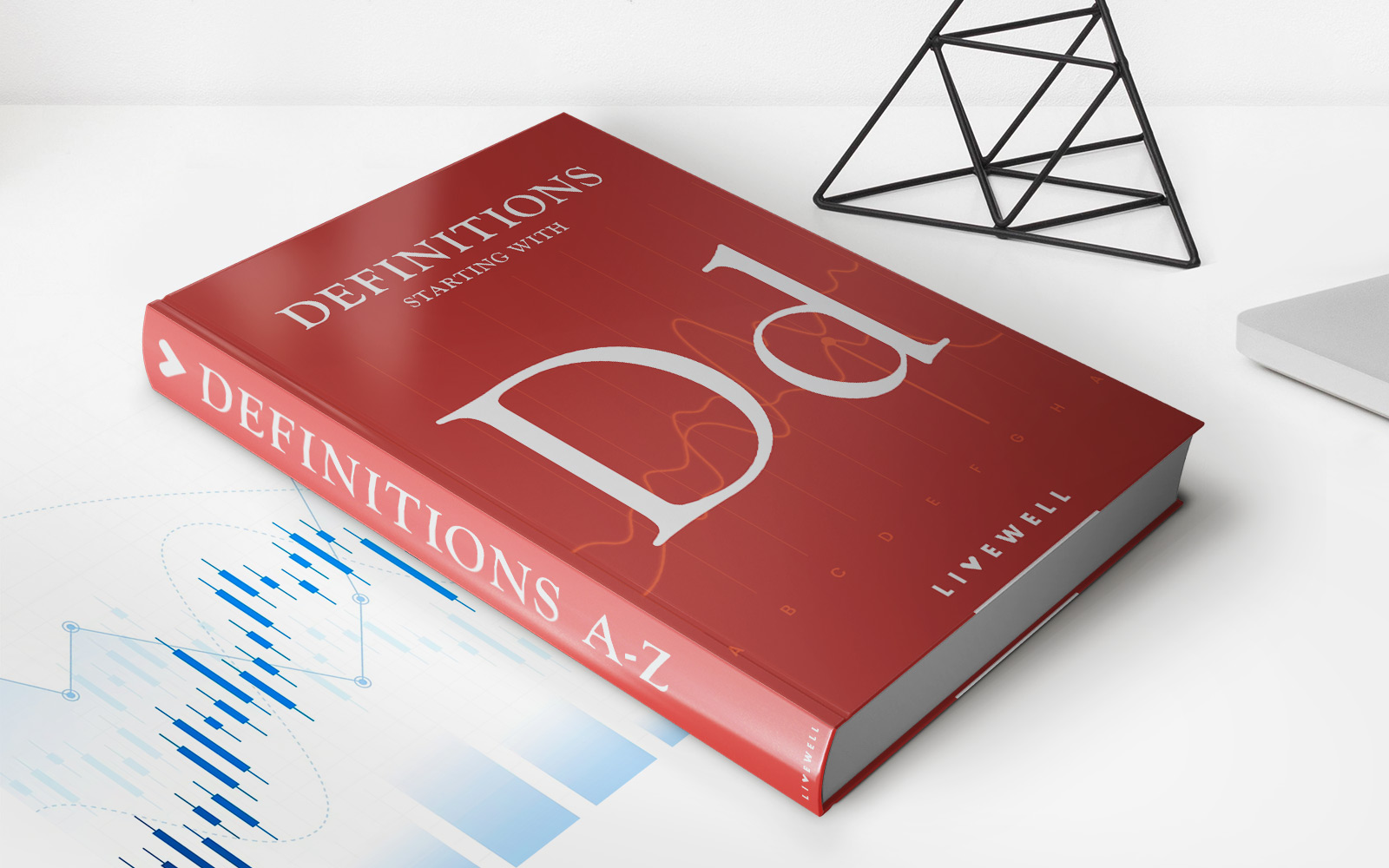

Finance
Why Do Employee Pension Funds Get Raided?
Published: January 23, 2024
Discover the reasons behind the raiding of employee pension funds and the impact on finance. Learn how to protect your retirement savings.
(Many of the links in this article redirect to a specific reviewed product. Your purchase of these products through affiliate links helps to generate commission for LiveWell, at no extra cost. Learn more)
Table of Contents
Introduction
Employee pension funds are designed to provide financial security and stability for individuals during their retirement years. These funds are a crucial component of the overall compensation package for employees, offering a sense of assurance and peace of mind as they plan for their future. However, the mismanagement or misuse of these pension funds can lead to detrimental consequences for the employees who rely on them.
In recent years, there have been disturbing instances of employee pension funds being raided or misappropriated by unscrupulous individuals or organizations. This unethical practice not only jeopardizes the financial well-being of retirees but also undermines the trust and confidence that employees place in their employers and the pension system as a whole.
Understanding the dynamics of employee pension funds, the reasons behind their exploitation, and the potential ramifications of such actions is essential for both employees and employers. By shedding light on this critical issue, we can work towards implementing effective safeguards and regulations to protect the integrity of pension funds and uphold the rights of employees.
In the following sections, we will delve into the intricacies of employee pension funds, explore the underlying reasons for their exploitation, examine the far-reaching consequences of such actions, and discuss the legal and regulatory measures aimed at preventing the raiding of these vital funds. It is imperative to recognize the significance of safeguarding employee pension funds and to take proactive steps to ensure their security and viability for the benefit of present and future retirees.
Understanding Employee Pension Funds
Employee pension funds, also known as retirement plans, are financial arrangements established by employers to provide a source of income for employees after they retire from the workforce. These funds serve as a form of long-term savings, allowing employees to set aside a portion of their earnings during their working years to support themselves during retirement.
There are various types of pension plans, including defined benefit plans, defined contribution plans, and hybrid plans, each with distinct features and benefits. In a defined benefit plan, the employer guarantees a specified amount of retirement income based on a formula that considers factors such as the employee’s salary history and years of service. Conversely, a defined contribution plan, such as a 401(k) or 403(b) plan, enables employees to contribute a portion of their earnings to individual investment accounts, with the employer often matching a percentage of these contributions. Hybrid plans combine elements of both defined benefit and defined contribution plans, offering a blend of security and flexibility.
Employee pension funds are typically managed by financial institutions or investment firms, with the goal of generating returns on the accumulated funds through prudent investment strategies. These funds play a pivotal role in ensuring that employees can maintain their standard of living and meet their financial needs during retirement, thereby reducing the reliance on government assistance programs.
Understanding the significance of employee pension funds involves recognizing their fundamental purpose in providing financial security and stability for retirees. These funds represent a commitment by employers to support their employees beyond their active working years and are often considered a cornerstone of a comprehensive employee benefits package.
As employees contribute a portion of their earnings to these pension funds throughout their careers, they develop a sense of ownership and reliance on the funds as a crucial component of their retirement planning. Therefore, safeguarding the integrity and viability of employee pension funds is essential to honor this commitment and ensure the well-being of retirees.
Reasons for Raiding Employee Pension Funds
The raiding of employee pension funds can stem from a variety of motives, often driven by a combination of financial pressures, unethical behavior, and regulatory loopholes. Understanding the underlying reasons for such actions is crucial in addressing the vulnerabilities that can lead to the exploitation of these vital retirement assets.
One primary reason for raiding employee pension funds is the pursuit of short-term financial gain, particularly by employers or corporate entities facing financial distress. In dire financial situations, some employers may view the accumulated pension funds as a source of immediate liquidity to address operational challenges or debt obligations. This short-sighted approach disregards the long-term implications for employees who rely on these funds for their retirement security.
Furthermore, unscrupulous individuals within organizations may exploit pension funds for personal gain, engaging in fraudulent activities such as embezzlement or misappropriation of funds. This can occur through complex schemes that manipulate investment transactions or divert pension assets for unauthorized purposes, ultimately undermining the financial well-being of employees.
In some cases, lax regulatory oversight and inadequate governance mechanisms can create opportunities for the raiding of employee pension funds. Weak internal controls, insufficient transparency, and ambiguous regulatory frameworks may enable individuals or entities to exploit loopholes and engage in actions that compromise the integrity of pension assets.
Another contributing factor to the raiding of pension funds is the lack of awareness and understanding among employees regarding their rights and the management of their pension assets. When employees are not adequately informed about the administration and oversight of their pension funds, they may be more vulnerable to potential abuses or irregularities that threaten the security of their retirement savings.
Ultimately, the reasons for raiding employee pension funds often intertwine financial pressures, ethical lapses, regulatory deficiencies, and a lack of transparency. By addressing these underlying factors and implementing measures to enhance the governance and protection of pension assets, it is possible to mitigate the risk of pension fund raiding and uphold the commitment to safeguarding the financial well-being of employees in their retirement years.
Consequences of Raiding Employee Pension Funds
The repercussions of raiding employee pension funds extend far beyond the immediate financial impact, affecting the lives and well-being of retirees and the overall integrity of the pension system. Understanding these consequences is essential in highlighting the gravity of pension fund exploitation and the imperative need for protective measures.
One of the most profound consequences of pension fund raiding is the jeopardization of retirees’ financial security. When pension funds are misappropriated or depleted, retirees may face significant reductions in their expected retirement income, leading to financial hardship and an inability to meet essential living expenses. This can erode the quality of life for retirees who have diligently contributed to these funds throughout their careers.
Moreover, the erosion of trust and confidence in the pension system is a consequential ramification of fund raiding. Employees rely on the commitment made by their employers to safeguard their pension assets, and any breach of this trust can have lasting effects on the perceived reliability and viability of pension plans. Such breaches can instill apprehension and skepticism among current employees and deter potential job seekers from considering opportunities with organizations offering pension benefits.
From a broader societal perspective, the raiding of employee pension funds can place strain on government resources and social welfare programs. If retirees’ financial security is compromised due to pension fund mismanagement, there may be an increased reliance on public assistance programs, placing a burden on public finances and social support structures.
Furthermore, the reputational damage incurred by organizations involved in pension fund raiding can have enduring repercussions on their standing within the business community and among consumers. Instances of pension fund misappropriation can tarnish an organization’s reputation, leading to diminished investor confidence, consumer skepticism, and potential legal ramifications.
Addressing the consequences of pension fund raiding necessitates proactive measures to mitigate the impact on retirees, restore trust in the pension system, and uphold the ethical and legal obligations associated with pension management. By acknowledging the far-reaching effects of fund raiding, stakeholders can work towards implementing robust safeguards and regulatory frameworks to protect the integrity of employee pension funds and preserve the financial well-being of retirees.
Legal and Regulatory Measures to Prevent Raiding of Employee Pension Funds
Recognizing the critical importance of safeguarding employee pension funds, legislative and regulatory bodies have established measures aimed at preventing the raiding and misappropriation of these vital retirement assets. These legal and regulatory frameworks play a pivotal role in promoting transparency, accountability, and the prudent management of pension funds to protect the financial security of employees.
One fundamental legal measure designed to safeguard employee pension funds is the enactment of fiduciary responsibilities for those overseeing the management of these funds. Fiduciary duties impose an obligation on trustees, plan administrators, and other fiduciaries to act in the best interests of the plan participants and beneficiaries, ensuring that pension assets are managed prudently and ethically.
Additionally, regulatory authorities impose stringent reporting and disclosure requirements to enhance transparency and oversight of pension fund activities. These mandates compel employers and plan administrators to provide comprehensive disclosures regarding the financial status, investment strategies, and governance practices of pension funds, enabling stakeholders to assess the integrity and viability of these funds.
Furthermore, legal provisions such as the Employee Retirement Income Security Act (ERISA) in the United States establish standards for the operation and administration of employee pension plans, outlining specific guidelines for plan funding, vesting, and the fiduciary responsibilities of plan administrators. ERISA serves as a cornerstone of pension regulation, setting forth protective measures to safeguard the interests of plan participants and beneficiaries.
Regulatory bodies also conduct regular audits and examinations of pension funds to assess compliance with legal requirements and to identify any irregularities or potential risks. These examinations serve as a proactive mechanism for detecting and addressing issues related to pension fund management, ensuring that any deficiencies or concerns are promptly addressed to protect the interests of plan participants.
Moreover, legal and regulatory frameworks often establish penalties and sanctions for violations related to the mismanagement or misappropriation of pension funds. These deterrent measures are designed to hold accountable individuals or entities engaged in activities that compromise the integrity of pension assets, serving as a deterrent against unethical behavior and misconduct.
By implementing and enforcing these legal and regulatory measures, authorities aim to fortify the governance and protection of employee pension funds, instilling confidence in the pension system and upholding the commitment to secure the financial well-being of retirees. These measures underscore the imperative role of legal and regulatory frameworks in preserving the integrity and viability of employee pension funds for the benefit of present and future retirees.
Conclusion
The protection of employee pension funds is paramount in ensuring the financial security and well-being of retirees who have dedicated their careers to contributing to these vital retirement assets. The raiding of pension funds poses significant ethical, financial, and societal implications, underscoring the critical need for proactive measures to safeguard these funds and uphold the commitments made to employees.
Understanding the complexities of employee pension funds, the reasons for their exploitation, and the far-reaching consequences of fund raiding provides a foundation for addressing the vulnerabilities and implementing protective measures. It is imperative for employers, regulatory authorities, and stakeholders to collaborate in fortifying the governance and oversight of pension funds, promoting transparency, and upholding fiduciary responsibilities to protect the interests of plan participants and beneficiaries.
Legal and regulatory frameworks play a pivotal role in establishing standards for pension fund management, imposing fiduciary duties, enhancing transparency, and enforcing penalties for violations. These measures serve as a deterrent against unethical behavior and misconduct, fostering an environment of accountability and prudence in the administration of pension assets.
Furthermore, raising awareness among employees about their rights and the management of their pension funds is essential in empowering them to actively participate in the protection of their retirement savings. By fostering a culture of transparency, education, and vigilance, employees can contribute to the preservation of the integrity and viability of their pension funds.
In conclusion, the preservation of employee pension funds requires a concerted effort to address the underlying reasons for fund raiding, mitigate the consequences of mismanagement, and fortify the legal and regulatory frameworks governing pension assets. By prioritizing the protection of these funds, we honor the commitment to retirees and uphold the integrity of the pension system, ensuring that employees can retire with the financial security and dignity they deserve.







